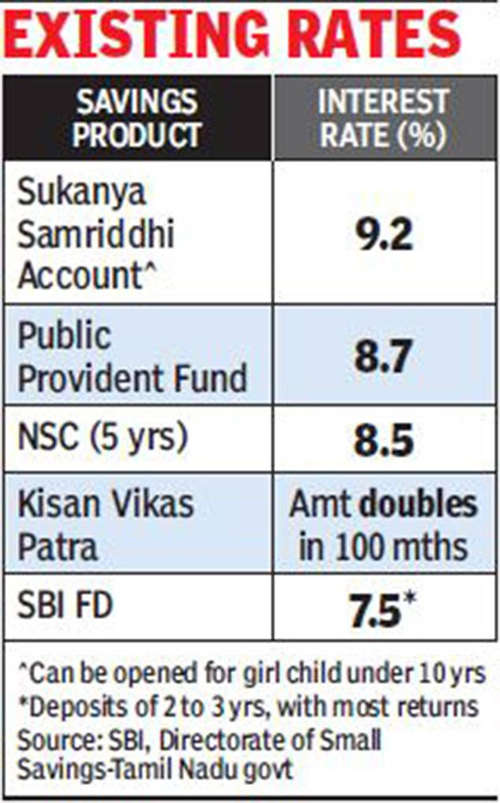The government is set to reduce interest rates on small savings products such as public provident fund and National Savings Certificate over the next few days - a move that will impact returns on your bank fixed deposits but also pave the way for banks to pare lending rates in the coming months and reduce the EMI burden.
The new formula will see small savings rates linked to returns on government securities of comparable maturity, with the reduction expected to be up to 50 basis points (100 basis points equal a percentage point). The finance ministry is finalizing product-specific rates and sources said the impact would be higher in case of maturity period of less than five years. There are indications that senior citizens and women will be protected with products such as the Sukanya Samriddhi Yojana spared the the axe, at least for the moment.
The new rates are expected to be notified over the next few days with the government set to announce quarterly revision instead of an annual reset, which is the norm currently, sources said.
Banks are expected to follow the small savings rate cut with lower fixed deposit rates, which over a period of a few months may translate into lower lending rates. In the past, lenders have been reluctant to pass on the benefit of lower rates to borrowers.

The Reserve Bank of India and banks have been seeking a reduction in small savings rates, arguing that PPF and other products offered higher returns when compared with fixed deposits, resulting in a flight of funds to the government schemes.
As a result, banks have been forced to maintain higher deposit rates, making it difficult for them to pass on the benefits of lower policy rates. Bankers have said higher small savings rates have meant that lending rates have been cut by a lower extent compared to RBI's policy rate reduction of 125 basis points last year.
Although the move may trigger a fall in returns on your savings, it is seen as a reform move by the government, which recently announced a plan to end subsidies to the high-income segment. The reduction also comes at a time when the middle class has become more comfortable investing in debt and equity mutual funds, which over the past decade have emerged as an attractive savings tool.
Source:-The Economic Times

No comments:
Post a Comment